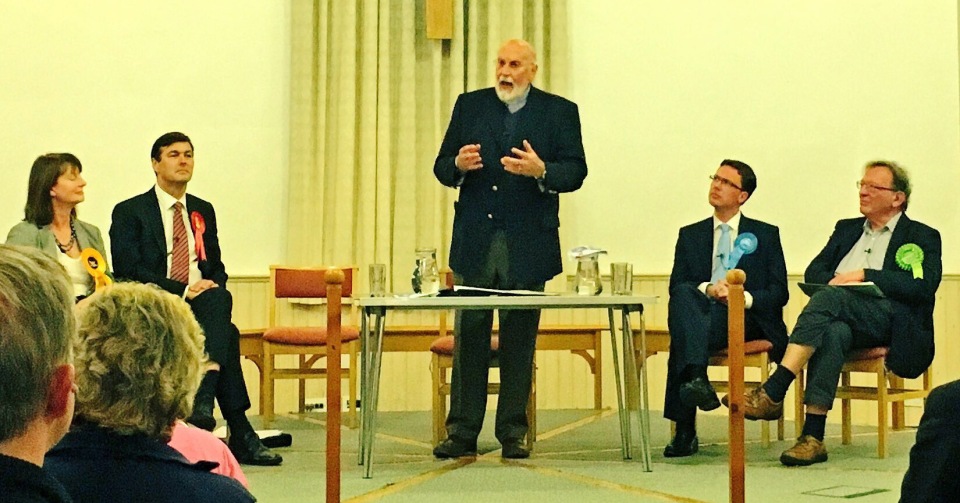Paris, 1994…
“On Saturday afternoon we went to see Schindler’s List, the Steven Spielberg movie about the man who rescued Jews from the Nazi concentration camps, saving thousands of lives.
In later life, when I had got to know Spielberg, I told him how the movie had affected me more than any I had ever seen. Steven, being actually a rather modest person, probably thought I was exaggerating in that way theatrical people do, but I wasn’t. I was spellbound throughout the whole three and a quarter hours. We sat through it, missed our dinner and talked about it long into the night.
There was a scene in it I kept coming back to. The commandant, played by Ralph Fiennes, is in his bedroom arguing with his girlfriend. He gets up to urinate, they’re still arguing and she is mocking him, just like any girlfriend might do. While in the bathroom, he spies an inmate of the camp. He takes up his rifle and shoots him. They carry on their argument. It’s her I think of. She didn’t shoot anyone; she was a bystander.
Except she wasn’t. There were no bystanders in that situation. You participate, like it or not. You take sides by inaction as much as by action. Why were the Nazis able to do these things? Because of people like him? No, because of people like her.
She was in the next room. She was proximate. The responsibility seems therefore more proximate too. But what of the situations we know about, but we are not proximate to? What of the murder distant from us, the injustice we cannot see, the pain we cannot witness but which we nonetheless know is out there? We know what is happening, proximate or not. In that case, we are not bystanders either. If we know and we fail to act, we are responsible.
A few months later, Rwanda erupted in genocide. We knew. We failed to act. We were responsible.
Not very practical, is it, as a reaction? The trouble is it’s how I feel. Whether such reactions are wise in someone charged with leading a country is another matter. But more of that later.”
That’s an excerpt from Tony Blair’s political memoir A Journey. It’s early on in the book and palms up he’s casting a seed for the inevitable discussion about the various wars to come. A personalised, dramatised variation on the phrase “the only thing necessary for the triumph of evil is for good men to do nothing.” Did TB have that in mind at the time? Is the girlfriend in the metaphor the ‘good men’?
In 2015, I’d hardly put the book down when the news media began following the movements of a young woman linked to another killer. We’re in Paris again and a lingering question formed – is she the girlfriend in the metaphor? And then I thought, what exactly did happen in that scene from Schindler’s List?
Things are bound to be a bit sketchy after 15 years, but we’ve got iTunes and its equivalents (Blockbusters then?) to check the details we’re about to put into print. So I did just that – I hired the film to see what it portrays. Irritatingly, I’ve just found it’s also available to stream free…
The scene begins at about 1h15m with the camp commandant, whose character Fiennes has already developed way beyond a-nasty-piece-of-work, standing on a balcony overlooking the camp. There is no preceding argument, and juggling a cigarette he fires two shots killing two women. After the first Spielberg cuts to the young woman in bed putting a pillow over her head. After the second the killer walks into the bedroom and we hear the last shell case bounce as the next bullet is driven into the chamber. She throws the pillow at him. He laughs. He urinates.
Assuming there isn’t another cut of this film, TB’s asking us to leap with him from; half-naked woman armed with a pillow at the point of a recently fired gun to; bystanders, proximate or not, being responsible for horrific acts of violence.
And what of the ‘good men’? Aren’t women more likely to be bystanders in atrocities? Perhaps when they’re not the victims.
It’s a good film, but more manipulation like this and I feel I’m unlikely to finish the book before the election.





